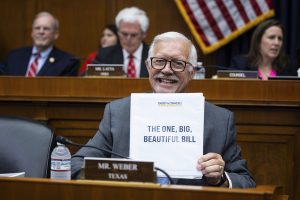
Bipartisan Support for Geothermal Energy Grows in Congress
Three years after the University of Oklahoma received a federal grant to explore geothermal energy at Tuttle Public Schools, the concept of recovering energy from abandoned oil and gas wells is gaining momentum nationwide. Both Republicans and Democrats in Congress now view geothermal as a serious part of the nation’s renewable future.
Congress Shifts Focus Toward Geothermal Energy Development
For decades, geothermal technology sat on the sidelines as political administrations favored other energy priorities. During the Trump administration, policy pushed traditional fuels like coal, oil, and gas, while the Biden administration focused on wind and solar.
Yet geothermal quietly advanced behind the scenes, driven by both scientific progress and bipartisan curiosity.
Colorado Senator John Hickenlooper, a Democrat and former geologist, acknowledged that the perception of geothermal has transformed.
“Fifteen years ago no one thought geothermal would ever be perceived as a serious energy source,” he said. “Now they’ve done it right, and there are several projects going on right now where they’re gonna do it at scale. It’s pretty exciting.”
Energy Leaders Invest in Underground Potential
Among the most enthusiastic advocates is Energy Secretary Chris Wright, a former oil executive from Denver and a longtime believer in tapping heat beneath the earth. Before joining the administration, Wright led Liberty Energy and backed Houston-based Fervo Energy with a $10 million investment.
“This is just an awesome resource that’s under our feet,” Wright told E&E News earlier this year. “While geothermal hasn’t achieved liftoff yet, it should and it can.”
Wright’s comments highlight how former oil professionals are leveraging drilling expertise from fossil fuels to advance renewable geothermal projects. The same wells that once produced oil may soon produce clean, continuous energy.
Texas Congressman Praises Geothermal’s Reliability
Even lawmakers known for defending fossil fuels are praising geothermal for its consistency. Texas Congressman Randy Weber emphasized the technology’s advantage at a Washington event.
“My friends across the aisle when they were touting all wind and all solar, I’m saying I don’t know if y’all know this, but the sun goes down at night,” Weber said. “Unlike those two power sources, geothermal is 24/7.”
His remarks underscore geothermal’s reliability, a critical advantage in an era of increasing demand for uninterrupted power. Both parties see promise in combining geothermal’s round-the-clock generation with existing infrastructure.
University of Oklahoma Expands Its Tuttle Geothermal Project
Back in Oklahoma, the University of Oklahoma continues pioneering geothermal research. In January, OU secured a second federal grant to deepen exploration of abandoned oil and gas wells around Tuttle. The project seeks to convert those inactive wells into productive geothermal systems capable of providing renewable energy for schools and communities.
Researchers believe that Oklahoma’s geology—dense with existing well infrastructure—offers a unique opportunity to test scalable geothermal models. Success could position the state as a national leader in subsurface energy innovation.
Geothermal Energy’s Future Looks Bright
While wind and solar continue to dominate renewable headlines, geothermal’s potential to produce constant, carbon-free electricity is winning bipartisan allies. From Denver to Washington and across Oklahoma, momentum for geothermal energy reflects a rare area of agreement in America’s energy policy.
As technology and investment align, the heat beneath our feet may soon become one of the nation’s most valuable renewable resources.
As far as the geothermal project at Tuttle, the University of Oklahoma received another federal grant in January of this year to tap abandoned oil and gas wells for the energy.
Click here for E&E News

